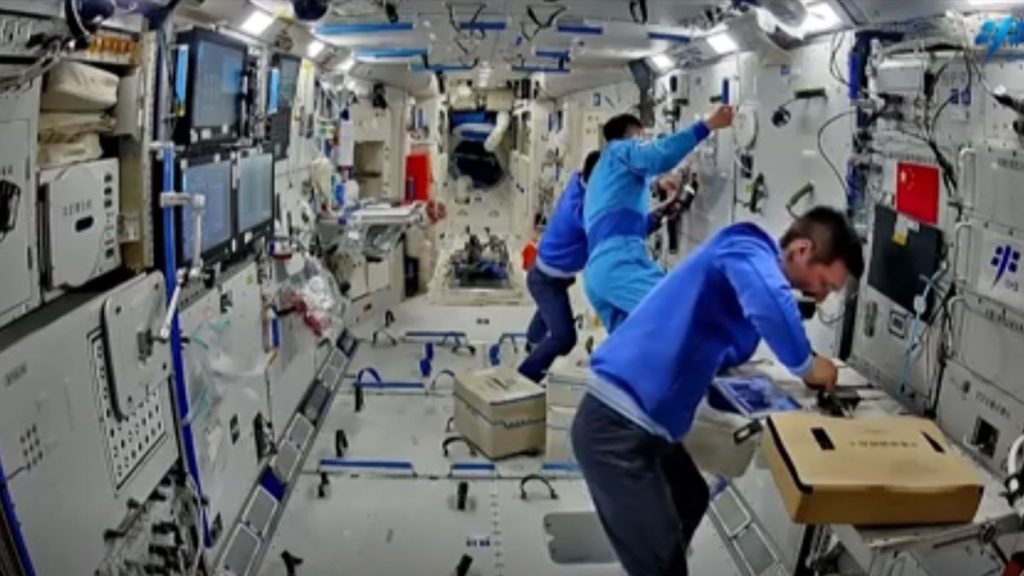
China’s Shenzhou 18 crew are ready to return home after more than six months in space.
Astronauts Ye Guangfu, Li Cong and Li Guangsu have been living aboard the Tiangong space station since April 25 this year, but are set to return to Earth on Sunday (Nov. 3) after completing their mission.
The trio greeted the incoming Shenzhou 19 crew aboard Tiangong on Oct. 30, meaning China briefly has six astronauts in space. Commander Ye officially handed over the control of the orbital outpost to Shenzhou 19 commander Cai Xuzhe on Nov. 1. The official ceremony marked China’s fifth such orbital changeover since completing the three-module space station in late 2022.
Ye, Li and Li are now expected to return to Earth aboard their Shenzhou 18 spacecraft and touch down in the Dongfeng landing area near Jiuquan spaceport at around 12:00 p.m. EST on Nov. 3 (1700 GMT; or 1:00 a.m. Beijing time on Nov. 4), according to airspace closure notices.
Related: China launches 3 astronauts to Tiangong space station on Shenzhou 19 mission (video)
It will be the second time astronauts land at Dongfeng during the nighttime. Observation and search and rescue teams have been performing final inspections, adjustments and drills ahead of the return of Shenzhou 18. Teams will use infrared thermal imagers for tracking.
Commander Ye and crew carried out a range of science experiments during their time aboard Tiangong, including studying ancient microbes. They performed a national record spacewalk outside the space station in May, and embarked on another in June to install protective shielding against space debris. Ye also recently became China’s first astronaut to surpass 365 days in space in total, having previously been a member of the Shenzhou 13 mission in 2021-2022.
The trio also conducted emergency drills and captured video of the Jiuquan Satellite Launch Center in the Gobi Desert—from which they launched in April—and the Wenchang spaceport, on the island of Hainan, from which Tiangong’s modules were launched.
China intends to keep Tiangong, which is roughly 20% as massive as the International Space Station, permanently occupied and operational for at least a decade. Officials recently unveiled plans to expand the space station into a double T-shape by adding three new modules. It will also send a Hubble-class space telescope into the same orbit, allowing it to dock to Tiangong for maintenance and repairs.

